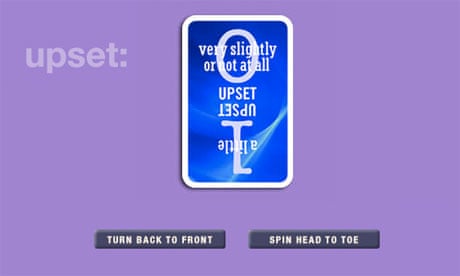Over the past decade, the number of patients presenting with anxiety and depression has increased steadily, and the current recession has done little to help. The Improving Access to Psychological Therapies (IAPT) programme aims to improve access to services for patients across England, but there is still a massive gap between the number of patients needing support, and the ability of the NHS to meet demand, says Dr Tracey Lucas, a GP in Washington, Tyne and Wear.
"We're seeing an increasing tide of patients who don't just need medication, but need access to counselling and talking therapies, which may have long waiting lists," says Dr Lucas. "We are also seeing a real increase in mild depression, which may not always require counselling, but there are not enough tools available to empower patients to manage their own condition."
That was the experience of Jon Cousins, who had suffered from periods of depression and mania for many years, but found the depression was becoming more serious as he got older. Cousins visited his GP and was referred to the psychiatric service but had to wait for several weeks before being seen by a triage nurse, who asked Cousins lots of questions without providing any idea of what his answers indicated. It was another three months before Cousins met a psychiatrist who diagnosed bipolar disorder.
"There was a three month wait for treatment and I was advised to record my mood during that time, but there was no simple tool available for me to do that objectively," explains Cousins. "Then I found a valid and respected test, called Panas, and I got permission to simplify it, and turn it into a game, something I could do in a few minutes, and enjoy doing."
The result was Moodscope, a website that allows users to record their mood by spinning and flipping 20 playing cards, which each represent an emotion, such as anger or anxiety. Users rate each card on a four-point scale, and the results are combined into a daily score, which can be plotted on a graph and tracked over time.
Recording mood on a daily basis in this way allows users to see the link between their behaviour and experiences and their mood. It can also clearly show the impact that medication and counselling may be having. Moodscope is currently free to use, but Cousins is planning to introduce a premium version in 2012 which will offer additional features in exchange for a monthly subscription fee.
Buddy up
The website also allows users to nominate up to five 'buddies' who receive email notifications of a user's mood score. "The idea is that this allows someone to track the user, and intervene or offer support where it may be needed," says Dr Lucas. "It's not necessarily a GP or counsellor, but someone close to the user, who they trust, and who is prepared to offer support."
There are now more than 6,000 people using the website each day, and Moodscope's own research suggests that people using the site tend to see faster results from counselling and medication. Users who use the website without additional treatment also tend to see fewer extreme swings in their moods, says Cousins.
The website is currently free and not approved, so cannot be 'prescribed' by clinicians, but Dr Lucas recommends it to patients attending her surgery. "It's not for everyone, but younger, more IT-literate patients find the website very supportive, and it's very empowering for them," she says.
The Institute of Psychiatry, part of King's College London, has recently completed a pre-pilot study into Moodscope, including focus groups and qualitative analysis of patients' experiences of the website over a period of three months. The full results will be made available in December, but initial findings are that the site's users report a significant improvement in their condition after using Moodscope, particularly the 50% of users who opt to appoint a 'buddy' who monitors their mood scores.
Could Moodscope be usefully deployed within the NHS? Emese Csipke, the institute's research analyst, is concerned that the system could end up putting pressure on GPs and psychiatric services inasmuch as they would be expected to monitor Moodscope users, but believes it could offer a valuable service to patients on waiting lists for talking therapies.
"At the moment there is a significant gap between someone being referred for talking therapy and receiving treatment, and they may end up being seen by a new graduate, rather than a proper counsellor. We really need to see more in the way of controlled trials, but the early indications are that this could be useful for people wanting to manage their condition better."
This article is part of our Tell us what you're doing right project, inviting network members to tell us about their innovative work in healthcare. Members can email healthcare@theguardian.com, with a note about their work, using the address with which they registered.
Click here to join Guardian Healthcare Network. This article is published by Guardian Professional.

Comments (…)
Sign in or create your Guardian account to join the discussion